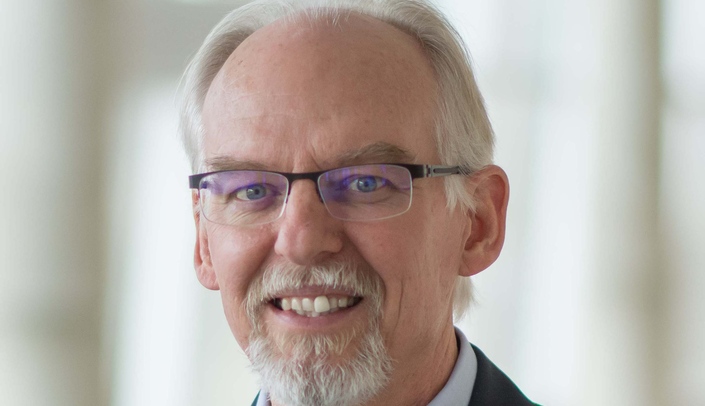Regular physical activity is a healthy behavior that, if formed in childhood, is more likely to follow a person through to adulthood — and could very well decrease childhood obesity and help prevent cancer.
Regular physical activity is what David Dzewaltowski, Ph.D., would like rural Nebraska communities to help promote. He is principal investigator of a $2.8 million, five-year National Cancer Institute grant at the University of Nebraska Medical Center that will study how rural communities can provide physical activities for youth. The study is in partnership with scientists at Iowa State University and Kansas State University.
“Since the 1970s, the obesity rate has quadrupled among youth in the US,” he said. “Our social systems have changed to allow less activity. Increased physical activity has been linked to the prevention of many cancers. Communities that offer more all-inclusive youth physical activities are key to cancer prevention and population health.”
Dr. Dzewaltowski is endowed community chair for physical activity, nutrition and obesity, and professor, health promotion at the UNMC College of Public Health and the Buffett Early Childhood Institute.
He is partnering with health departments throughout the state to recruit communities into the study. Four Corners Health Department, York, and Southeast Health Department, Auburn, are the first to recruit communities. Together, they will design ways that physical activity opportunities can be more integrated into schools, after school programs, scouting and youth sport settings that are open to all children.
Dr. Dzewaltowski would like to see a diversity of activities that include less structured activities and more opportunities for such moderate-to-vigorous child-driven play as pick-up games and free play.
The study is based on a series of school, after school, youth club and youth sport findings. Dr. Dzewaltowski and Chelsey Schlechter, research associate, recently published in BMC Public Health from a study that found that adults may unintentionally create environments that decrease more vigorous physical activity for children by spending too much time coaching skill and strategy.
“Kids are sometimes better off just playing," he said. "We see an increase in vigorous activity if kids determine their own play. We want to flip the idea that child development is about building one-on-one interactions, and instead think about it as building a community wellness landscape where a child can access health-promoting, socially diverse interactions throughout the day.”
He will use a new video observation method paired with accelerometers (like a pedometer) to measure physical activity while program changes are being made. The information will drive decisions the community makes to improve activity opportunities.
We are Nebraska Medicine and UNMC. Our mission is to lead the world in transforming lives to create a healthy future for all individuals and communities through premier educational programs, innovative research and extraordinary patient care.
